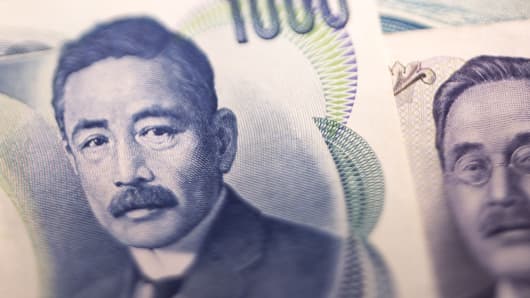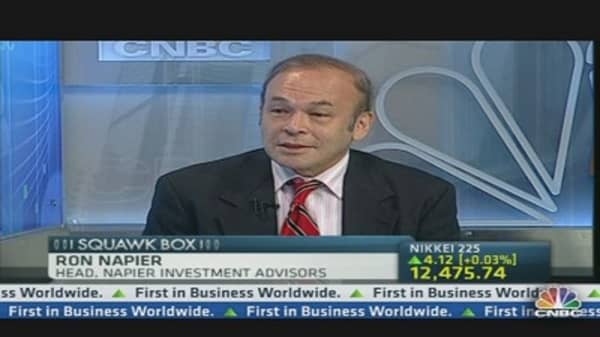After talking their currency down 20 percent over the past four months, Japanese policymakers have suddenly gone silent as the yen halts its dramatic fall. Why?
Japan watchers give two possible reasons for this silence. It could be because of heightened international criticism over Japan's verbal intervention to weaken the yen and second the policymakers may be waiting to see what impact the currency's rapid weakening is having on the economy.
"We're not seeing the direct, verbal attacks on the yen anymore and that is important for the markets," said David Mann, head of regional research at Standard Chartered in Singapore, adding that the pace of depreciation in the yen was likely to slow as a result.
After its rapid decline the yen has regained some lost ground – it is up 2 percent from a 3-1/2 year low of 96.70 per dollar hit on March 12.
"It is an important point that the yen has weakened 20 percent, so it could be that there's now a wait-and-see approach to what the impact of that is, while being aware that they [Japanese officials] can't push the yen too far without attracting attention from policymakers around the world," Mann added.
The yen's slide against major currencies came amid expectations of aggressive monetary easing and a drive by Japan's new Prime Minister Shinzo Abe to revive a stagnant economy.
(Read More: Yen Meddling – What Has Japan Started)






